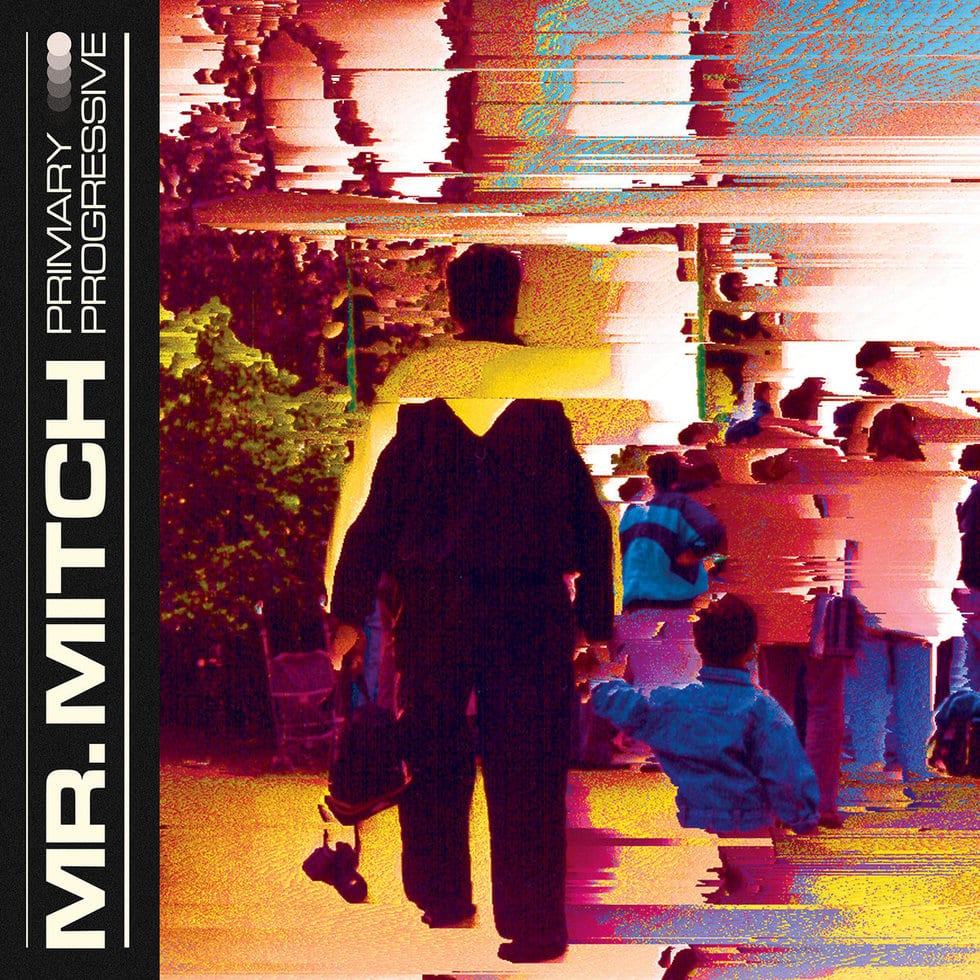
Miles Mitchell, aka Mr. Mitch, is a staple of the London club scene. As the main runner of Gobstopper Records and co-runner of the club night Boxed, he remains in the center of the UK grime community. Yet, Mitchell’s own music continues to push toward the peripheries of the genre’s origins. His last two full-length releases, 2014’s Parallel Memories and 2017’s Devout, reimagine grime music and its expressive capabilities. Honing the more ethereal and melodic side of grime instrumentals, he redirects the genre’s battles from inward “war dubs” to outward criticisms—Devout disrupts the limited mass media representations of black fathers.
Now, since releasing his last two records on Planet Mu, Mitchell has come back to his own imprint Gobstopper Records for his latest EP Primary Progressive. It has been four years since his last release on the label, but he understandably returns for a very personal project. The five-song EP navigates the struggles of Mitchell’s father’s battle with Multiple Sclerosis (MS). Named after the specific type of MS—Mitchell explains about primary progressive, “It’s essentially the worst kind you can get”—this work of musical lamentation directly confronts the multiplicity of emotions that comes from coping with his father’s condition.
Primary Progressive begins in a low-lying fog. “Restart” dwells in thick vapors, letting melodies unfold with time. Over a simple kick metronome, Mitchell steadily bows wobbling synths and delicately sings a humble talk box solo. With only a short, singular structure and minimal instrumentation, the opening track makes a strong opening statement against the conventions of club music: Primary Progressive will deviate from expectations, so be ready for contradictions in Mitchells’ approach to grime music.
With every release, it becomes more difficult to categorize Mr. Mitch projects into a single genre. However, Mitchell continues to consider himself as a grime producer. “A lot of it is just me taking ideas from grime and then just doing something different with it. And I think that’s just how genres expand,” he tells Bandcamp Daily. His intention to progress grime music manifests in tracks such as “Settle”, in which grime tropes blend into dancehall and R&B. A guttural bass pulsates underneath saturated claps; reverberated lasers and bitcrushed patters sound off like missiles in the background; and, the track feverously pushes onward with a thrusting momentum. Yet, all of these familiar grime sounds do not sit under rap verses. Rather, a soft, high-pitched vocal sample gives space for the instrumental to take over.
In contrast to 2017’s Devout and its long list of vocalists and rappers, Primary Progressive offers no features. Rather, Mitchell forefronts the very personal project with his own vocals. On “Show Me”, he croons, “Show me the way / You’re making it hard and I’m gonna lose faith.” In a whispering delivery, the candid prayer tries to make sense of his father’s fight with primary progressive MS. “I find that juxtaposition between the word progressive—something in music that we’d normally view as positive—and the fact that it can also refer to degradation interesting,” Mitchell says. So perhaps, this unwavering commitment to progressing grime music is a way to reclaim the word. While his father’s diagnosis may disillusion his faith, musical lamentations offer a medium for recovering some control over the matter.
Accordingly, Primary Progressive remains an unfettered expression of experimentation throughout. “Phantom Dance” is an elusive take on dancehall that revolves around the interplay of composition choices, rather than melodies or beats. The playful battle between the percussive stabs and nocturnal keys teases expectations, instinctively shifting tones and swelling dynamics. “Closure” is an ambient house track that deteriorates into a soft haze. High-passed percussions faintly tap into time, while nebulous synths digress into the void. The contradictions pull away from each other until they both fade into an echoing exit. Together, “Phantom Dance” and “Closure” progress further away from grime music, yet they reiterate the EP’s purpose.
Primary Progressive and its divergence from grime music’s familiar aesthetics and functions does not indicate a departure from the genre. Rather, it is expanding grime music’s possibilities. Mitchell’s latest EP truly honors the initial streak of experimentation that led to the emergence of the style he still identifies with. So, in the spirit of the underground scene’s start, Mitchell continues to practice his ethos of progressing club music, making grime music into an unbound medium that can continue its traditions in battle, or start new traditions in reflective expressions and candid lamentations.

